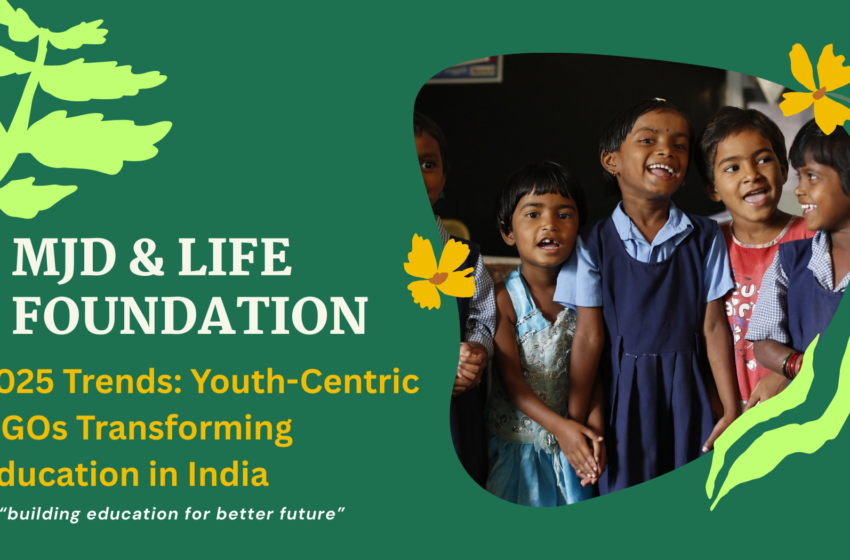2025 Trends: How Youth-Centric NGOs Are Reshaping Education in India

In 2025, India is witnessing a transformation in the way education is being delivered and democratized for underprivileged youth. This change is being driven not just by government initiatives or private institutions—but by youth-centric NGOs who are bridging the learning divide with grassroots innovations and hyper-local strategies. These non-profits are actively redefining access, equity, and quality in education across urban and rural communities.
1. The Rise of Community-Led Learning Initiatives
Gone are the days when education was confined to formal classrooms. Youth-focused NGOs are now creating community learning hubs, especially in underserved regions like Virar, Palghar, and rural Maharashtra. These hubs provide digital learning tools, career guidance, and peer learning environments—all driven by local youth volunteers who understand their communities deeply.
2. Digital Empowerment and Hybrid Learning
The post-pandemic surge in digital education has left a large portion of India’s low-income youth behind. Youth-oriented NGOs are responding by offering digital literacy programs, providing refurbished devices, and ensuring internet access in low-connectivity zones. These efforts support hybrid learning models that blend offline mentorship with online curricula.
3. Skill Development Beyond Classrooms
Beyond academics, youth-centric NGOs are leading the movement for 21st-century skill development—communication, digital marketing, coding, entrepreneurship, and even vocational training. Many of these organizations are working directly with industry partners to ensure employability upon course completion.
4. Localized Mentorship & Peer Leadership
What sets these NGOs apart is their focus on peer mentorship. Trained alumni from within the community return as mentors—making the learning experience more relatable and culturally sensitive. The presence of familiar role models boosts confidence and increases retention in educational programs.

5. Bridging the Gap Between Rural and Urban Learning Opportunities
With educational inequality still stark between metro cities and tier-2/3 regions, NGOs are creating exchange programs, online seminars, and virtual workshops that allow students in rural India to interact with industry experts, teachers, and fellow learners from urban areas.
6. Advocacy for Policy Change and Youth Rights
Youth-focused NGOs are also stepping into advocacy roles—campaigning for inclusive education policies, gender equality in schooling, and mental health support in academic settings. Their voices are shaping the national discourse on educational reform.
7. Collaborations with Tech Platforms and EdTech Startups
Many NGOs now partner with edtech platforms to build custom learning paths, use AI to track student progress, and deliver bite-sized content suited to different learning levels. These collaborations ensure that even students outside the mainstream system can learn at their own pace.
Organizations like MJD & LIFE FOUNDATION IN MUMBAI | VIRAR, are at the forefront of this movement, setting benchmarks in inclusive and sustainable youth education.
To support or collaborate, explore how your contribution can shape India’s future through education of NGO FOUNDATION IN MUMBAI

